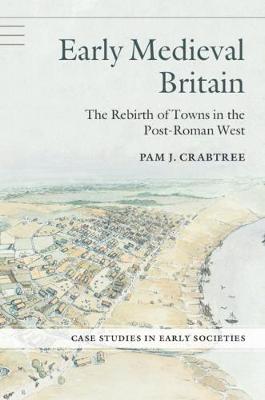The growth and development of towns and urbanism in the pre-modern world has been of interest to archaeologists since the nineteenth century. Much of the early archaeological research on urban origins focused on regions such as Mesopotamia, Egypt, and Mesoamerica. Intensive archaeological research that has been conducted since the 1960s, much of it as a result of urban redevelopment, has shed new light on the development of towns in Anglo-Saxon England. In this book, Pamela Crabtree uses up-to-date archaeological data to explore urban origins in early medieval Britain. She argues that many Roman towns remained important places on the landscape, despite losing most of their urban character by the fifth century. Beginning with the decline of towns in the fourth and fifth centuries, Crabtree then details the origins and development of towns in Britain from the 7th century through the Norman Conquest in the mid-eleventh century CE. She also sets the development of early medieval urbanism in Britain within a broader, comparative framework.
- ISBN13 9780521713702
- Publish Date 7 June 2018
- Publish Status Active
- Publish Country GB
- Imprint Cambridge University Press
- Format Paperback (US Trade)
- Pages 246
- Language English
